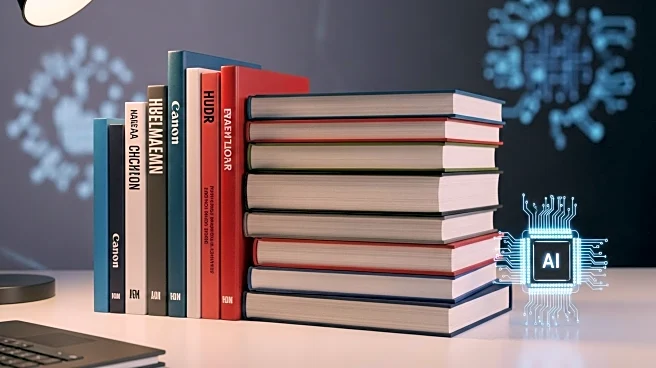What's Happening?
A class-action lawsuit has been filed against the AI company Anthropic by novelist Andrea Bartz and other authors. The lawsuit accuses Anthropic of using their books without permission to train its AI models. The case, Bartz v. Anthropic, highlights the unauthorized use of copyrighted material by AI companies to develop generative AI tools. The settlement reached requires Anthropic to destroy its collection of illegally downloaded books. This case is part of a broader wave of legal actions against AI companies, including OpenAI and Microsoft, for similar copyright infringements.
Why It's Important?
The lawsuit against Anthropic underscores the growing tension between AI development and intellectual property rights. Authors and other content creators are increasingly concerned about their work being used without consent, potentially undermining their livelihoods. The settlement, although not a legal precedent, may influence future cases and encourage AI companies to reconsider their data acquisition practices. This case also raises questions about the ethical use of AI and the need for clearer regulations to protect creators' rights in the digital age.
What's Next?
Following the settlement, Anthropic is expected to comply by destroying the illegally obtained books. Other AI companies may face similar legal challenges, prompting them to review their data usage policies. The outcome of this case could lead to more stringent regulations and guidelines for AI training data, potentially impacting the development and deployment of AI technologies. Stakeholders, including authors, publishers, and tech companies, will likely continue to engage in discussions about balancing innovation with intellectual property rights.
Beyond the Headlines
The case highlights a broader ethical debate about the role of AI in society and the responsibilities of tech companies. As AI becomes more integrated into various industries, the need for ethical guidelines and legal frameworks becomes more pressing. This lawsuit may serve as a catalyst for broader discussions on how to ensure that AI development respects the rights and contributions of individual creators.











